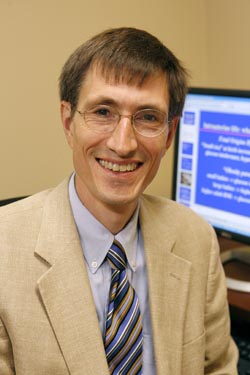Robert Whitaker | Professor of public health and professor of pediatrics
Introducing New Faculty …
 Joseph Labolito/Temple University
Whitaker
|
Professor of public health at the College of Health Professions, professor of pediatrics at the School of Medicine and medical director, Center for Obesity Research and Education.
Last stop: Senior fellow at Mathematica Policy Research, Inc., a Princeton, N.J., firm that conducts policy research and surveys in areas including public health, nutrition and early childhood development for federal and state governments, foundations and private-sector clients. Degrees: M.D. from Johns Hopkins University School of Medicine in Baltimore; M.P.H. from University of Washington School of Public Health and Community Medicine in Seattle; B.A. in Chemistry from Williams College in Williamstown, Mass. Fall class: “Epidemiology” Recent research/publications: |
|
What made you want to study ways to prevent childhood obesity? What is the most recent book you’ve read and enjoyed? Something no one would guess about me: What is your worst habit? What do you like to do when you’re not at work? Do you have any hidden talents? Do you have a favorite movie? What was the last concert or show that you went to? Why I chose Temple: “I wanted to work in a place where I could make teaching a more integral part of scholarship. At Temple there seems to be a healthy balance between creating knowledge through research and sharing knowledge through teaching and service. I have always viewed a career in academic medicine and public health as an informal social contract because much of my own education and research have been supported by public funds. I think that contract requires a balance between creating and sharing knowledge. That balance is also what makes scholarship sustainable in our society.” |
|